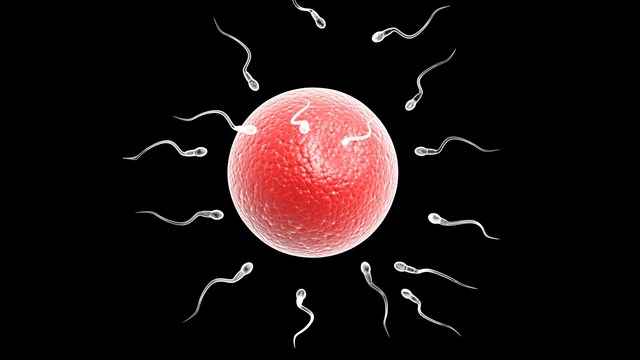 Divakaran Dileep/PhotoSpin
Divakaran Dileep/PhotoSpin
Sperm are highly adept at swimming against a current, new research shows. This revelation could lead to more efficient artificial insemination techniques, according to the researchers.
The discovery, made by researchers at Massachusetts Institute of Technology (MIT) and Cambridge University, was published in the journal eLife.
This may help us to better understand how some sperm travel such long distances through difficult terrain to reach and fertilize an egg.
While we know that sperm cells can "smell" chemicals given off by the egg once they get very close to it, this does not explain how they navigate for the majority of their journey, Jörn Dunkel, an assistant professor of mathematics at MIT, and research team member told ScienceDaily.com.
“We wanted to know which physical mechanisms could be responsible for navigation,” Dunkel said in an MIT press release. “If you think of salmon, for example, they can swim against the stream, and the question was whether something similar could really be confirmed for human sperm cells.
It is an extremely difficult journey. Hundreds of millions of sperm start out but only a very few reach the egg. They have to travel long distances -- up to 1,000 times their length -- while being exposed to different chemicals and currents along the way.
Since watching sperm swimming in the human body is too difficult, Dunkel and colleagues conducted lab experiments in which they changed the flow of fluid in specially designed tubes, to observe how sperm responded to different current speeds.
Researchers found that at certain current speeds, sperm are able to very efficiently swim upstream. In addition, instead of swimming upstream in a straight line, sperm swim in a spiral motion near the walls of the tube, where the current flow would likely be slower.
Next, the researchers want to learn whether or not sperm work together to reach an egg.
"It is a commonly held belief that there is competition between sperm cells, with the fittest reaching the egg first," Dunkel said to HealthDay News.
"But recent studies by our team and others show that sperm practically always accumulate at the surface of a tube, and you can end up with a high local concentration of sperm cells, so there could actually be cooperation among these cells that allows them to swim faster collectively."
Not only would this improve our understanding of human reproduction, but it could also one day allow us to design new diagnostic tools and more efficient artificial insemination techniques, the researchers claim.
They believe that reproduction specialists could take sperm samples and artificially recreate the conditions within the body to identify the cells that are the best swimmers, in a bid to preselect those most likely to succeed.
Sources:
"Did you know? Sperm cells 'extremely efficient at swimming against current'." The Health Site. N.p., n.d. Web. 4 Aug. 2014.
http://www.thehealthsite.com/news/did-you-know-sperm-cells-extremely-efficient-at-swimming-against-current
Preidt, Robert. "Sperm Swim Against the Current, Study Finds." Consumer HealthDay. N.p., n.d. Web. 4 Aug. 2014.
http://consumer.healthday.com/infertility-information-22/infertility-news-412/sperm-swimming-distances-elife-mit-release-batch-1214-688229.html
"Sperm cells are extremely efficient at swimming against a current: How sperm travel long distances, through difficult terrain, to reach an egg." ScienceDaily. ScienceDaily, n.d. Web. 4 Aug. 2014.
http://www.sciencedaily.com/releases/2014/05/140527101342.htm
"Study: Sperm Swim Against The Current - CBS Connecticut." CBS Connecticut. N.p., n.d. Web. 4 Aug. 2014.
http://connecticut.cbslocal.com/2014/06/02/study-sperm-swim-against-the-current
Reviewed August 6, 2014
by Michele Blacksberg RN
Edited by Jody Smith





Add a CommentComments
There are no comments yet. Be the first one and get the conversation started!